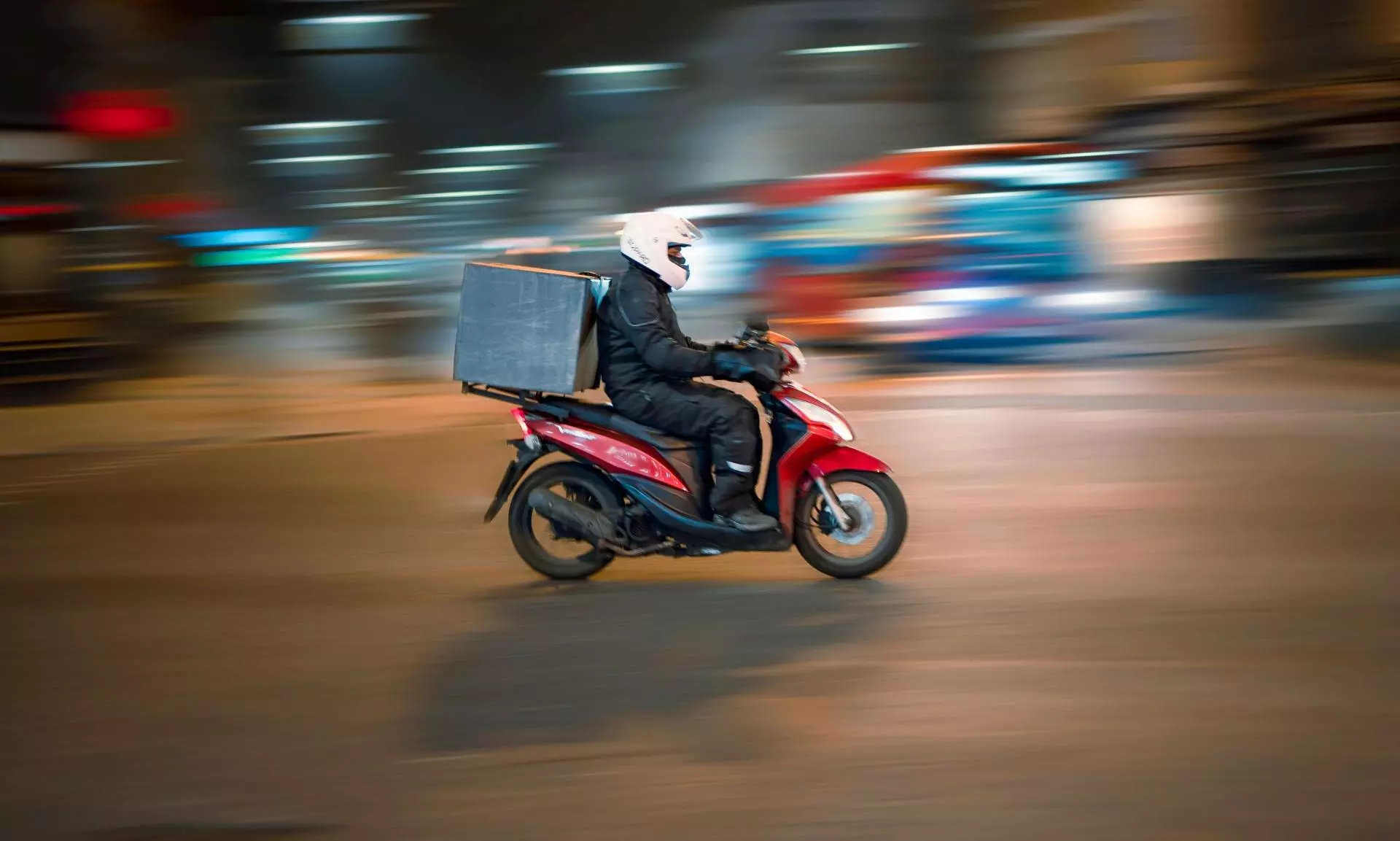Indian logistics industry adapting to new realities

The logistics industry in India -especially the last-mile delivery system—is experiencing significant growth at present raising expectations of an eventful 2024. An India Brand Equity Foundation (IBEF) report says the logistics market will reach an impressive US$ 380 billion by 2025, with a YoY growth rate of 10%-12%. Moreover, the government is looking to bring down the logistics and supply chain costs from 13-14% to 10% of the GDP.
Key players are adopting the latest technologies to enhance customer experience. The logistics sector recognizes the importance of streamlining cargo movement in a fast-paced environment. As a result, companies are keen on integrating new technologies for comprehensive management and strategic planning to be able to cater to the growing demands.
Last-mile drone delivery
The last-mile delivery system is undergoing significant technological transformation in response to such challenges as traffic congestion, customer preferences and regulatory complexities. Alternative delivery methods, such as autonomous robots and drones, backed by advanced tracking systems, can ensure faster, more efficient deliveries. Drones can reach remote areas for delivery, bringing down cost and time. There are many new businesses aggressively working towards exploring this space and overcoming challenges of transportation infrastructure, especially in remote locations with limited road connectivity.
Major food delivery companies such as Zomato, Swiggy, have shown interest in using drones for deliveries. Such e-commerce giants as Amazon and Flipkart are also likely to use drones for last-mile deliveries, while medical supply via drone is also gaining momentum in India’s remote and hilly regions, such as Uttarakhand and Meghalaya.
IoT, AI, ML and robotics
Next-generation technologies—IoT, AI, ML and robotics—are making logistics and supply chain more customer-centric and sustainable. Automation of logistics processes results in significant increase in productivity and efficiency in workflow.
IoT is a connection of physical devices monitoring and transferring data via the Internet and without human intervention. In logistics and supply chain operations, integrating IoT technology improves efficiency, transparency and real-time visibility of goods. IoT further enables predictive analytics for logistics companies to anticipate demand fluctuations.
Artificial intelligence (AI) and machine learning (ML) algorithms enable logistics companies to be proactive in dealing with demand fluctuations. AI-enabled forecasting allows managers to plan supply chain processes and reduce inventory waste. Businesses are also leveraging AI to optimize route planning and load consolidation to reduce fuel consumption and carbon emissions to boost sustainability efforts.
Integrating robotics into logistics improves speed and accuracy of logistics processes and reduces human error. Robots improve productivity compared to human workers, although they do not replace humans.
Popularity of D2C brands
Over the past few years, India’s D2C market has gained traction because of growing e-commerce penetration; improvement in digital infrastructure; growing millennial population; increase in consumer tech awareness and increasing number of D2C startups with their wide range of offerings. But it was Covid-19 that helped the D2C sector reach a significant milestone.
The D2C model is becoming more popular with established FMCG brands, such as ITC and Hindustan Unilever, facing stiff competition from new D2C businesses. Many companies are turning to this model because it eliminates the middleman. Infact, D2C brands have many options available for last-mile deliveries with various companies like Borzo, Shadowfax, Dunzo, Shiprocket aiding additional help.
Quick commerce – within 60 mins
Even some months ago, especially during the pandemic, customers expected same-day, or two-day deliveries. But online shoppers today have become more tolerant. A recent survey by Radial shows that less than 20% of consumers said 1-2 days was a realistic delivery period for online orders; nearly 38% felt 3-5 days was satisfactory; and for 35% of consumers, one week was reasonable. However, many consumers also want fast shipping. So, delivery speed is still an important buying factor. But the good news for eCommerce is that the intense pressure to deliver at record speed has eased. The challenging news is that retailers should be able to meet any speed, at any time.
MSME and its logistics needs
According to the MSME ministry, the sector plays a key role in India’s economic growth, generating nearly 27% of the country’s GDP. But logistics challenges for MSMEs are a barrier to efficient operations and growth. Experts say that, since the sector depends heavily on logistics, it was badly hit by the pandemic. One more challenge it faces is adoption of e-commerce solutions. According to experts, because of the competitive market scenario, companies now prefer to hold inventories closer to their target markets for improved delivery efficiency. So, a logistics company that has a transportation and warehousing network with cost-effective, multi-location pick-up and deliveries, prompt assistance and interventions would be a better choice.
With Lok Sabha elections underway, the logistics industry is likely to come under the lens. With political equations affecting regulations, infrastructure investment and trade policies, the trajectory of the logistics industry is likely to be affected. So, players in this industry will be keeping an eye on the political scenario, which will decide the next changes in economic policies and trade agreements that will form the logistics environment. In this decisive year, India’s logistics sector is ready to navigate a unique confluence of challenges and opportunities. So, businesses that can anticipate and embrace the new trends will not only succeed in this changing set-up, but also help India’s logistics sector become sustainable and efficient in the coming days.
The views and opinions expressed in this article are those of the author and do not necessarily reflect the views of Indian Transport & Logistics News.

Eugene Panfilov
He is general manager of the intra-city delivery service company Borzo in India & Brazil.



